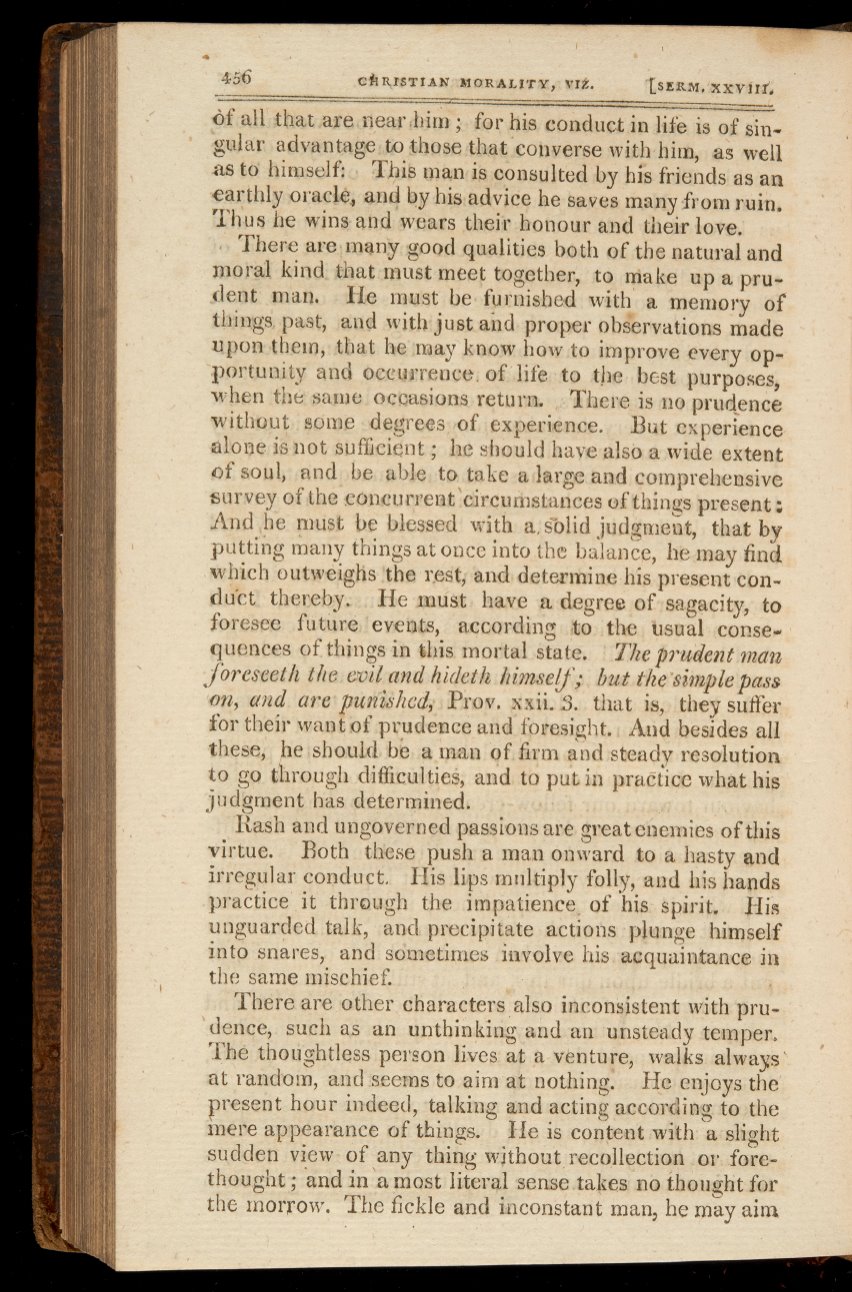

456
Ci9R,ISTIAN
MORALITY,
Vit.
tSERM, XXV17Í.
bf
all
that
are near
,him
;
for
his
conduct
in life
is
of
sin
-
gular
advantage
to
those
that
converse
with
hirn,
as
well
as
to
himself:
This
than
is
consulted
by his
friends
as
an
earthly
oracle, and
by
his
advice he
saves many
-from
ruin.
Thus
he
wins
and
wears
their honour
and
their
love.
There are
many good qualities
both
of
the
natural and
moral
kind.
that
must meet together,
to
make up
a
pru-
dent
man.
He
must
be
furnished
with
a
memory
of
things, past,
and with
just
and
proper
observations made
upon
them,
that
he
ruay
know how to
improve every op-
portunity
and
occurrence.
of
life
to the best purposes,
when the same occasions
return.
There
is
no prudence
without
some
degrees
of
experience.
But
experience
alone
is
not
sufficient
;
he
should have also
a wide
extent
of
soul,
and
be
able to take a large and comprehensive
survey of
the
concurrent
circumstances
of
things
present:
And
he must be blessed with
a,
solid
judgment,
that
by
putting
many
things
at
once
into
the
balance, he
may find
which
outweighs 'the rest,
and determine
his
present
con-
duct
thereby.
He
must
have
a
degree
of
sagacity,
to
foresee
future
events,
according
to
the usual conse-
quences
of
things in this
mortal
state.
The
prudent
man
foreseeth
the evil
and
hideth
himself; but
the
simple
pass
on,
and are
punished, Prov.
xxii.
S.
that
is,
they
suffer
for their want
of
prudence
and
foresight. And besides all
these, he
should
be
a man
of.
firm
and steady resolution
to
go
through
difficulties,
and
to
put
in
practice what
his
judgment
has
determined.
Rash and ungoverned
passions are
great
enemies
of
this
virtue.
Both these push
a
man onward
to a
hasty
and
irregular conduct. His
lips
multiply
folly,
and
his
hands
practice it through
the impatience,
of
his
spirit. His
unguarded
talk, and
precipitate actions
plunge himself
into
snares, and sometimes involve
his
acquaintance
in
the same
mischief.
There
are other characters
also
inconsistent
with
pru-
dence, such
as
an
unthinking and
an unsteady temper.
The
thoughtless person lives
at
a
venture,
walks
always'
at
random, and
seems
to aim
at
nothing.
He
enjoys
the
present hour
indeed, talking and acting according
to the
mere
appearance
of
things.
He
is
content with a
slight
sudden
view
of
any thing without recollection or
fore-
thought
;
and
in
a
most
literal
sense .takes no
thought for
the morrow.
The
fickle
and
inconstant
man, he may aim

















